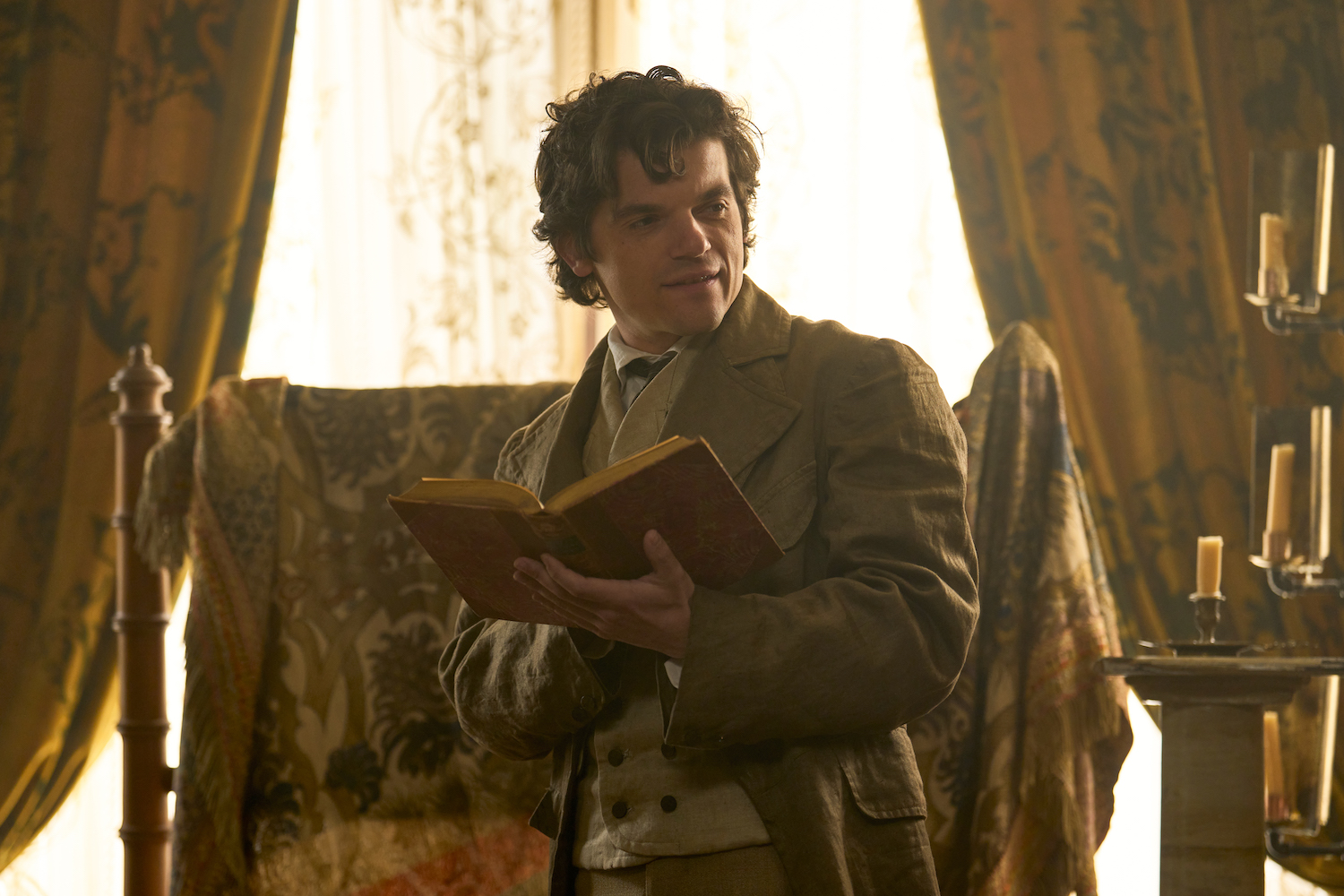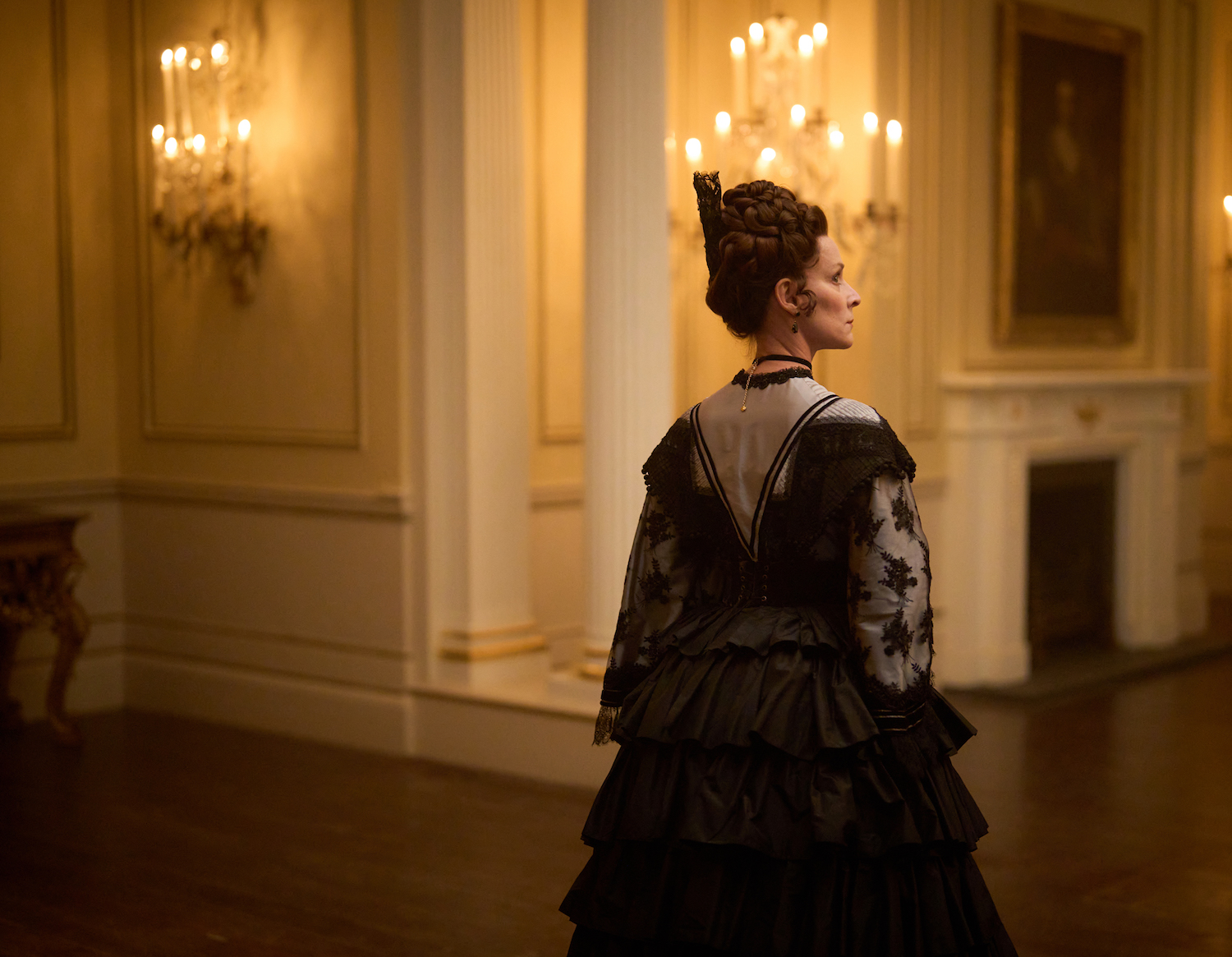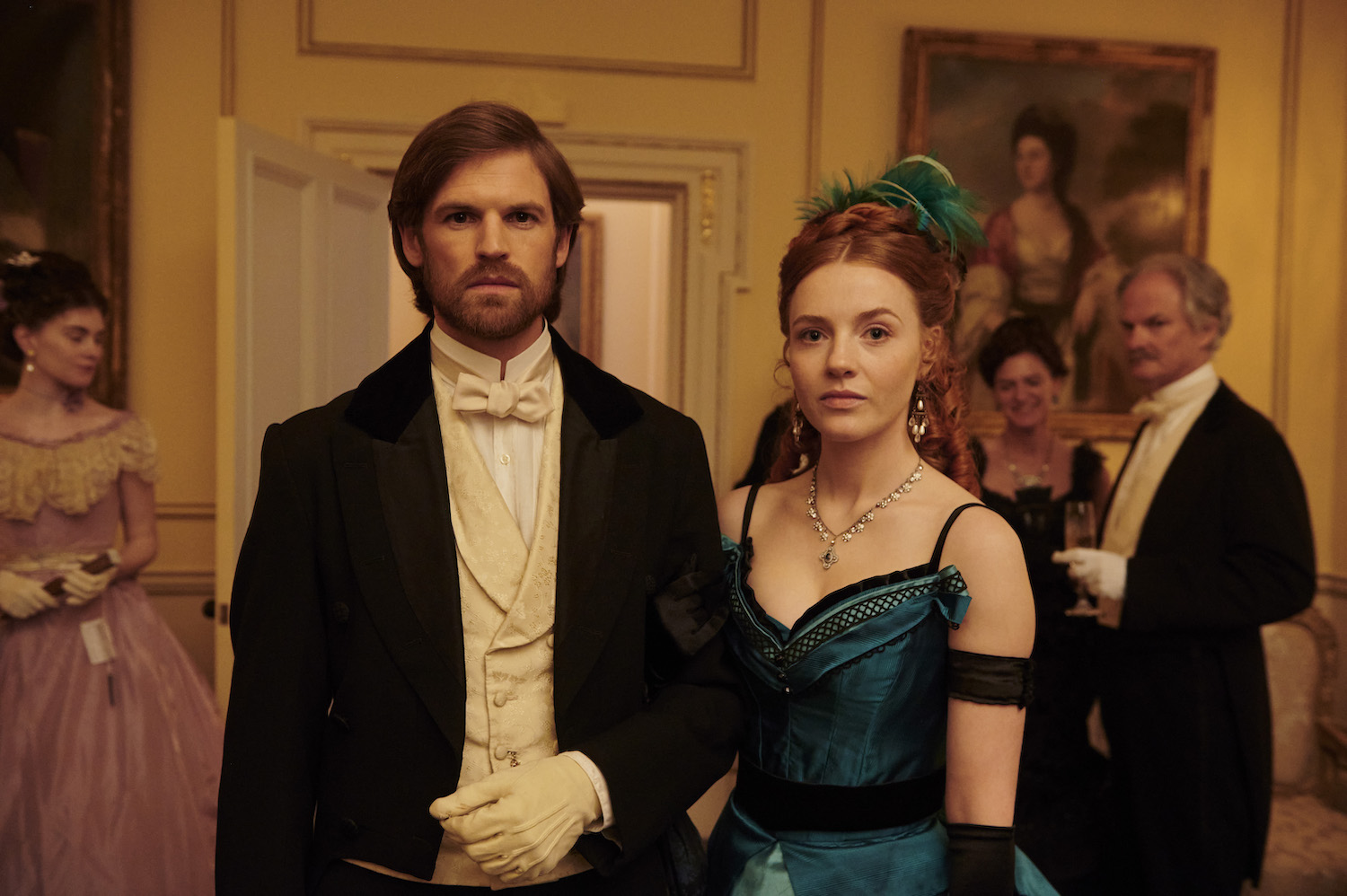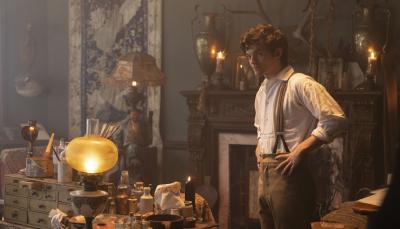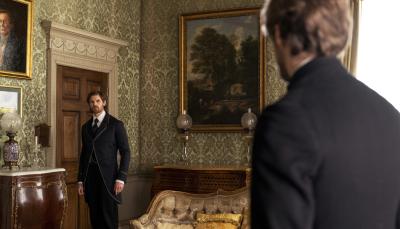As 'Belgravia: The Next Chapter' Continues, Clara Makes Some Ill Advised Choices
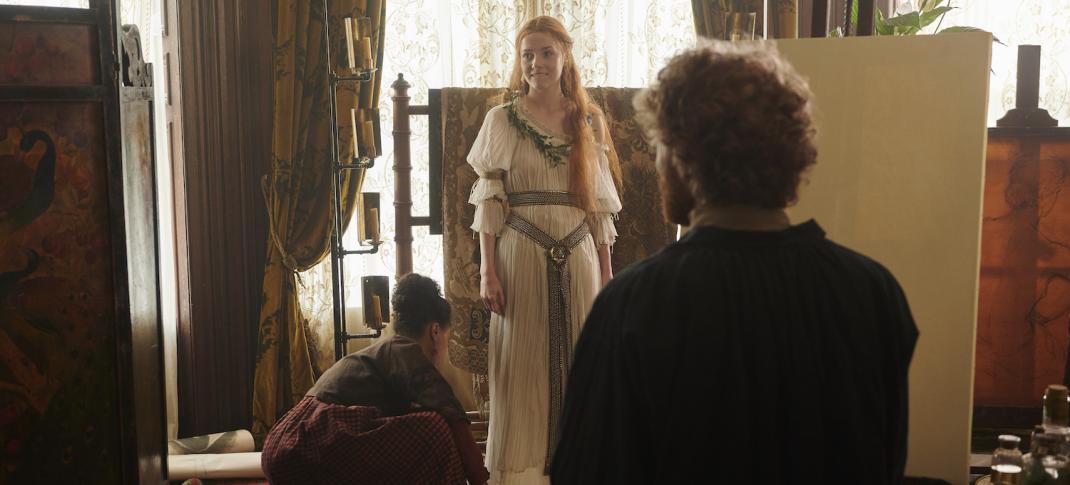
Harriet Slater in "Belgravia: The Next Chapter"
(Photo: Rob Baker Ashton /Carnival Film & Television Limited/MGM+)
Anyone who's still watching Belgravia: The Next Chapter probably has to be asking the same question at this point in the series: What on earth are we doing here? Five episodes into its run, it really shouldn't be this hard to identify the series' primary thesis, or to figure out what kind of story it's trying to tell. Instead, five episodes on, the show seems to do little besides grow increasingly bloated, adding on subplots with abandon and repeatedly forgetting that in order to care about what happens to these people we at least have to like some of them.
The trouble in the Trenchards' marriage keeps worsening, for reasons that are, honestly, ridiculous at this point. Clara keeps trying to get Frederick to open up to her, but he won't talk about his estrangement from James, his dead parents, or why he's so obsessed with his increasing business dealings when they're already both titled and rich. Even his one attempt at an apology ends up coming out like he's more concerned about whether the Rochesters will think he and Clara are fighting than he is about understanding what's making his wife so unhappy.
Clara, for her part, is making her own fun, repeatedly dragging poor Davison along to the apartment of Dr. Ellerby and his Bohemian friends. They're beneath her socially and Davison is constantly on edge that someone is going to notice that her ladyship is slumming it, but at this point, Clara doesn't really seem to care. She's all in on poetry readings and artist talk and secretly seems to love it when Ellerby's roommate Richard keeps asking for a chance to paint her. On some level, it's hard to blame her. She's young and lonely and doesn't have any friends that weren't Frederick's friends first. And while she could probably hang out more with her own family, her sister is also the insufferable Emily, so maybe the wannabe Moulin Rouge crew is actually the better choice.
Poor Davison is doing her best to help her boss avert disaster, reminding her repeatedly that going to hang out at some strange man's apartment isn't a great look, and she probably shouldn't take her corset off in order to dress like a Greek goddess so Richard can paint her. She even tries to delicately point out that Ellerby's got an obvious and potentially scandalous crush, but Clara's simply fascinated by the freedom and expression he and his friends have access to that she doesn't. (Though, since Clara carefully doesn't mention her new friends to Frederick and burns the note that accompanies the book of poetry Ellerby sends her as a gift, it's clear that her ladyship is aware that she's toeing some dangerous lines.)
Considering how lovey dovey Clara and Frederick were when this series began, the lengths to which their relationship has fallen are both surprising and deeply sad. He gets mad at her for meddling in his business affairs, she's increasingly angry at being ignored. She buys an expensive, eye-catching new gown that makes her the talk of the Marquise D'Étagnac's ball; he gets angry at how much attention she receives in it. (And that she dances with someone else, quelle horreur!) They both insist neither even knows the other at all anymore, and Frederick yet again pushes her away when she tries to talk.
Of course, Clara ends up sobbing in Ellerby's arms by the end of the hour, the real surprise is probably only that it hasn't happened sooner. Perhaps now we'll finally get some actually insight into whatever the good doctor's actual deal is — no matter how much he likes her, he surely understands that Clara is married and any sort of relationship with her is a threat to his own livelihood serving the Rochesters and their ilk. Where does he actually think this is all going? (And, for her part, does Clara actually even like him, or would she emotionally glom on any man who treated her kindly at this point?)
However, the weirdest swerve in this fifth episode has to be the dawn of Marquise D'Étagnac's villain era. A sort of useless character up until this point, she's an exiled French aristocrat who seems to have fled the French Revolution but somehow maintained a substantial business empire. (Though her behavior in this episode is enough to make you wonder if she just isn't some sort of dedicated scammer, to be honest.) Thus far, the character has been notable only for her near-Single White Female level crush on Clara, but this week she starts meddling in the Trenchards' personal and business lives in an unprecedented way.
Fully informed on the pair's marital troubles, she gives deeply contradictory advice to each of them. Quietly hinting to Clara that the reason her husband seems less interested in her is because he's most likely having an affair—possibly with the Duchess of Rochester—she encourages her to find her own hobbies ("distractions") and build a life for herself outside of her marriage. It's all very girl-power-ish, at least until she tells Frederick that he should crack down on his wife's emotional excesses and find a way to reign her in.
The Marquise also casually mentions that the only reason she hasn't offered Frederick an investment position in the Brazilian silver mine she's backing is because she knows their steel business has pushed his capital to the limit and he can't afford it. Lord Trenchard, unsurprisingly, gets his back up about this and insists he's totally fine, finance-wise, and will figure it out. (He does this by breaking his cardinal rule of not borrowing cash, which I think we can all safely assume is going to end terribly.)
Why is she doing any of this? Shrug emoji. The show doesn't seem to yet think that's information any of us need to know. It seems that "scammer" is the most likely answer, but how setting Frederick and Clara even further at odds with each other benefits her in any way. is a complete mystery.
Elsewhere, poor James is still going through it. Blackmailed by the guy that he hooked up with at the baths last week, he somehow ponies up the cash to keep his secret safe, though there's no guarantee that a single payoff means he'll be free from this threat. As if that's not enough, he's also got to deal with Emily Dunn, who's busy digging into the private life of new maid Nell and is now convinced she's secretly noble born with some manner of scandalous past. Her rush to spill this tea is wild, as though alerting the vicar that one of his parishioners is somehow a bigger sinner than they all assumed is somehow going to earn her brownie points with him.
James, who has bigger problems to deal with than Emily's crush on him, refuses to indulge in her rush to get her judgment on, reminding her rather forcefully that her behavior isn't particularly kind. Her reaction is unintentionally hilarious, as she suddenly remembers she's supposed to be acting like a Good Christian Girl and that means things like gossiping at extreme length about another's misfortunes are pretty frowned upon. What makes it all even better is that she seems to have convinced herself Nell is some sort of Important Person in Exile, and asking her to do the basic housekeeping she was hired to do is insulting in some way.
Truthfully, however, the only way any of this connects to the larger story that Belgravia is telling is that Emily (somehow??) passes Richard's art gallery and recognizes her sister's face in one of his paintings. (Clara, it seems, needs to do some reflection about trusting a stranger's promise that he'll make sure no one can tell its her when she agrees to participate in his art.) Emily, who is already mad that her sister has basically ignored her since her marriage, is even more displeased by the promise of the embarrassment this will likely mean for their family.
Just wait until Frederick finds out.

